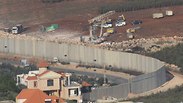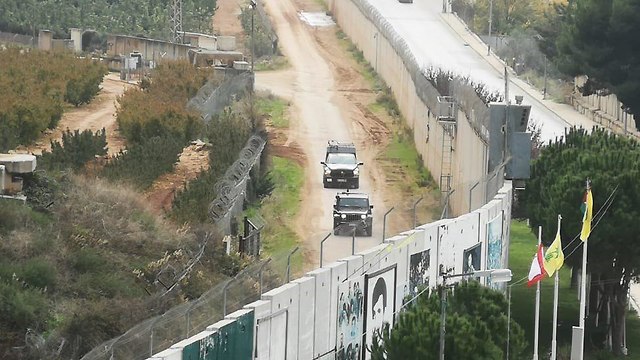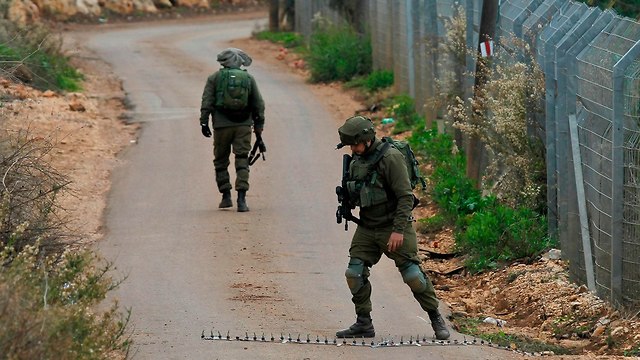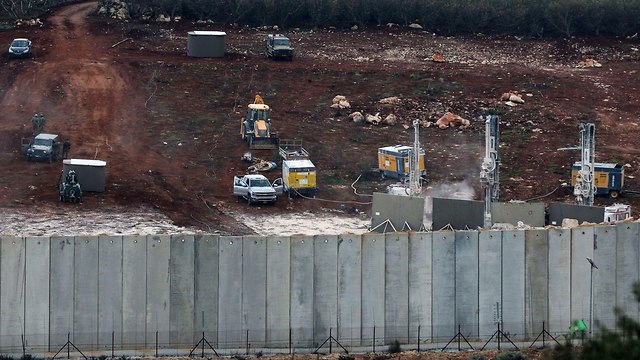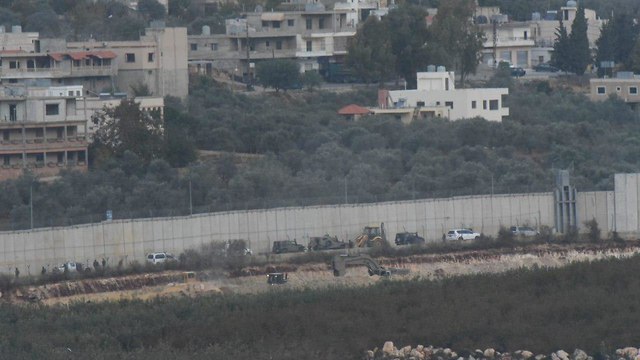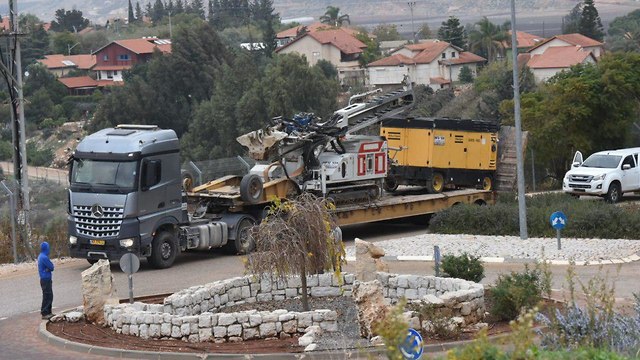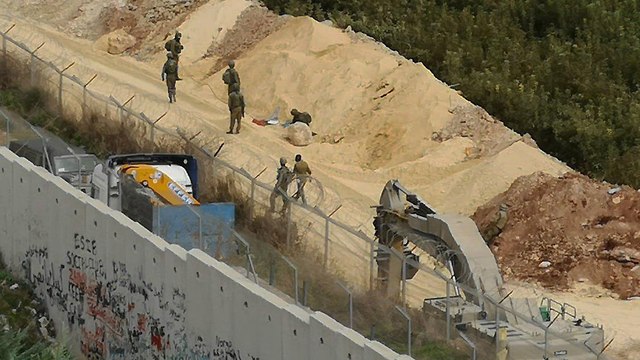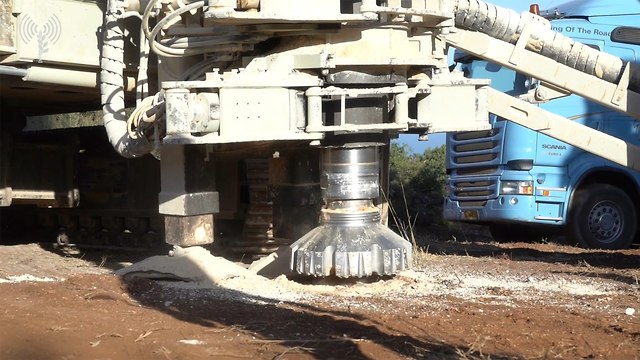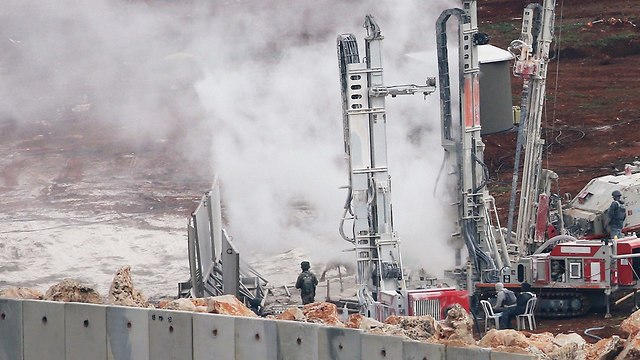At present, Israeli defense officials don't foresee a military escalation in the north. While the IDF is working to expose and destroy a Hezbollah tunnel—and perhaps several tunnels—in the Metula area, the work is being done inside Israeli territory and neither Hezbollah nor the Lebanese government have any cause to claim that Israel is carrying out any aggressive action against them.
Hezbollah was caught by surprise. The digging of the offensive tunnels into Israel was carried out quietly and apparently at a depth that led Hezbollah to believe that Israel remained oblivious to the underground effort. It will take a few days for the terror group to conduct a situation assessment and decide whether to act or not.
There is one more reason, perhaps the most important of all: if Hezbollah tries to interfere with the effort to uncover and neutralize the tunnels by firing into Israeli territory, Israel may expand the operation to all of Lebanon and undermine Iran's efforts to establish factories in Lebanon to upgrade the accuracy of Hezbollah's missile and rocket arsenal. Hezbollah and the Iranians are very concerned about such an eventuality.
In this context, we recall Prime Minister Benjamin Netanyahu's meeting with US Secretary of State Mike Pompeo in Brussels on Monday. Mossad Director Yossi Cohen, National Security Advisor Meir Ben Shabbat and the prime minister's military secretary also took part in the meeting.
An official statement about the meeting stated it dealt with curbing Iranian activity in the north, including in Lebanon and Iraq, but it is safe to assume Netanyahu asked for the meeting to warn the United States about the Operation Northern Shield to clear the tunnels, which can of course develop into a major war if Hezbollah decides to retaliate.
The meeting itself was meant to signal to all the parties operating alongside and under the auspices of Iran that Israel will not accept offensive tunnels infiltrating its territory, nor will it allow Hezbollah to improve the accuracy of its vast arsenal of missiles and rockets—ezbollah has between 120-150 thousand missiles and rockets ready for launch throughout Lebanon, including southern Lebanon.
Diplomatic pressure will increase
A few years ago, Hassan Nasrallah announced that Hezbollah intends to "conquer the Galilee." Websites associated with the Shiite organization published a map of the operation, according to which Hezbollah intends to penetrate into Israel by way of a number of traffic arteries, and occupy a large part of the western and eastern Galilee between Metula and Rosh Hanikra.
Israel took this plan very seriously, and as a result it was decided to build an obstacle on the northern border that would make it difficult for Hezbollah militants to infiltrate in a ground operation.
A few days ago, UN Secretary-General Antonio Guterres condemned the construction of the barrier, including a wall, in certain sections of the Lebanese border, claiming that this obstacle creates tensions on the frontier.
Guterres also condemned the Lebanese government for not maintaining its part of the ceasefire agreement that ended the Second Lebanon War in 2006.
Now that Israel has revealed and proven to the UN the existence of offensive tunnels from Lebanon into Israel, the secretary-general will have to address the matter and the pressure on Lebanon will increase.
It is now likely that the United States, France, Great Britain, Germany and other countries in the West—including the European Union—will put pressure on Hezbollah and Iran to not only stop the construction of cross-border tunnels—which is itself considered a blatant violation of international law—but to also stop work on upgrading Hezbollah's rocket and missile arsenal.
As far as Israel is concerned, the tunnels cease to be a threat once they are exposed, while the real threat is the accuracy and improvement of missiles and rockets. If war breaks out, Israel could face substantial destruction and heavy losses. Interception systems will not be able to handle such large barrages of missiles equipped with an accurate navigation mechanism that could hit critical military and civilian targets. Israel is determined to prevent such a situation at all costs.
The discovery of the tunnels can aid on the diplomatic front—and perhaps also validate military action against the main threat.
Tunnels dug in wadis, not towns
It is impossible not to address the claims of residents living along the northern border, some of whom say they could detect tunnel digging under their homes. They will certainly say, "We told you so," but the truth is that Hezbollah dug their tunnels in a manner that would enable its men to exit in an orderly fashion and then attack Israeli towns.
What motivated Hezbollah to build the tunnels is actually the border obstacle that Israel has built, and continues to build, above ground. They realized that Israel was conducting a military operation on the surface, and then, like Hamas at the time, began digging tunnels through the hard rock of the Galilee. The residents' intuition was correct, but apparently they did not actually hear the digging of the tunnels as they claimed.
Hezbollah has taken on a difficult task by digging tunnels on the northern border because of the terrain. In the south Hamas is digging through clay soil mixed with sand, which is easy to dig in—even with a spoon. In the north, the terrain is composed of limestone rock, which is hard to quarry and requires mechanical tools that make a lot of noise and are relatively easy to spot. Therefore, Hezbollah tried to situate its tunnels in dry riverbeds (wadis) with thick layers of ordinary earth, in which digging tunnels is easier.
In any case, we can assume that the methods and means developed for exposing the tunnels along the Gaza border have been adapted to meet the needs of the northern border, which enabled the discovery of the tunnels and their route, and now their destruction. The IDF, the intelligence community and the defense establishment as a whole deserve a big pat on the back.













